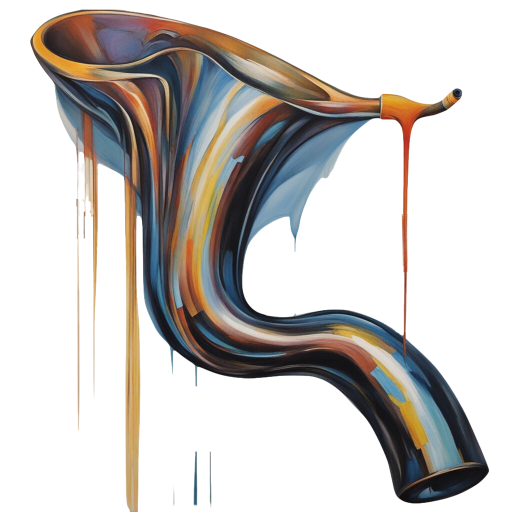Psychology is an interesting degree! You reading this page, my guess is, that you’re either thinking about pursuing a degree in psychology or you’ve recently graduated. Either way, you’re probably wondering, “What can I really do with a psychology degree?” Trust me, I know people who have ply this route including me, and I can confidently tell you that the possibilities are vast and thrilling.
When I first delved into the world of psychology, like you, I was curious and perhaps a bit uncertain. But soon enough, I realized that a psychology degree isn’t just about delving into the human mind; it’s about unlocking doors to diverse opportunities that impact various aspects of society. From understanding consumer behavior to improving athlete performance, the applications are endless.
10 Cool things to do with a psychology degree
Clinical Psychologist
You might have already heard of clinical psychologists, but there’s so much more to this role than what meets the eye. Imagine being someone’s beacon of hope, guiding them through their darkest times. That’s the kind of impact you can have as a clinical psychologist.
At its core, a clinical psychologist delves deep into understanding, diagnosing, and treating different mental and emotional disorders. From anxiety and depression to more complex conditions like schizophrenia, you’d be equipped to help individuals navigate their mental health.
Now, here’s the cool part. Once you dive into clinical psychology, you can further specialize. Ever thought about working exclusively with children and understanding their unique challenges? That’s where child psychology comes into play. Or maybe you’re interested in how aging affects the mind? Geriatric psychology might be your calling. And if understanding the intricate connection between our brain structures and behaviors fascinates you, neuropsychology is an avenue worth exploring.
Forensic Psychologist
If you’re someone who’s always been fascinated by TV shows like “Criminal Minds” or “Mindhunter”, this path might be the perfect blend of your interests. Enter the intriguing world of forensic psychology! Forensic psychologists sit at the crossroads of psychology and the legal system. This means you wouldn’t just be working in clinics or hospitals; you’d find yourself in courtrooms, prisons, and even crime investigation scenes. Sounds thrilling, right?
Your primary role? To understand the psyche of individuals involved in the legal system. This could range from evaluating a defendant’s mental competence to stand trial, to working with child witnesses, to even profiling serial criminals.
Moreover, in custody battles or cases involving trauma, you’d play a pivotal role in offering insights that can guide legal decisions. You’d also be instrumental in rehabilitating offenders and helping them reintegrate into society, ensuring they’re mentally equipped to lead a life away from crime.
Now, as exciting as this might sound, it’s not all about chasing criminals or diving into high-profile cases. At its heart, forensic psychology is about ensuring justice, whether it’s for the accused, the victims, or society at large. This might require additional training in law or criminal justice, but the blend of psychology and legal intricacies ensures that there’s never a dull moment in this profession.
Sports Psychologist
Have you ever watched an Olympic event and wondered, “How do these athletes handle such immense pressure and still perform at their peak?” Well, behind many of those stellar performances is the guiding hand of a sports psychologist.
Sports psychology isn’t just about helping athletes nail that perfect routine or shot. It’s about tapping into the mental and emotional aspects of athletic performance. Think about it. Physical prowess can only take an athlete so far. The rest? It’s all in the mind.
As a sports psychologist, you’d be working closely with athletes, understanding their fears, anxieties, and aspirations. You’d help them build resilience, manage stress, and stay motivated, especially after setbacks or injuries. Visualization techniques, mindfulness, and cognitive-behavioral strategies might become your best friends in this role.
The best part? Your clientele can vary widely. From budding young talents in high schools to professional athletes aiming for the next world championship, your expertise can benefit them all. And it’s not just about individual athletes. Teams, coaches, and even parents often seek guidance on fostering a positive sports environment.
Now, if you’re imagining yourself on the sidelines of a major sporting event, cheering on an athlete you’ve closely worked with as they clinch a medal, you’re on the right track! To embark on this journey, you might need to delve a bit into sports sciences or kinesiology, but the fusion of sports and psychology is exhilarating.
Human Resources (HR) Specialist
At the heart of every thriving organization is its workforce, and who better to manage, nurture, and understand that workforce than someone trained in psychology? In HR, your role transcends mere recruitment. You’ll be entrusted with ensuring employee well-being, resolving conflicts, and fostering a healthy work environment. Imagine designing training programs that cater to varied personalities, or mediating a challenging workplace scenario using your understanding of human dynamics.
With the rise of organizational psychology, businesses now recognize the value of psychological expertise in shaping company culture, boosting employee satisfaction, and, ultimately, driving productivity. Your psychology degree doesn’t just open doors to therapy rooms; it can also lead you straight into the boardroom. If the intersection of psychology and business excites you, the HR realm awaits your expertise.
Market Researcher or Consumer Behavior Analyst
Ever wondered why certain advertisements just stick in your mind or why some products fly off the shelves while others don’t? That is a result of the world of market research and consumer behavior!
As a market researcher, your keen insights into human behavior become a key tool for businesses. Companies are always eager to understand what makes their customers tick. Why do they prefer one product over another? What drives brand loyalty? Your role would be to dive deep into these questions, employing surveys, focus groups, and other research methodologies to gather data. But it’s not just about data collection; it’s about interpreting this data in a way that it becomes actionable intelligence for businesses.
On the other hand, as a consumer behavior analyst, you’d focus specifically on the psychological aspects of consumer choices. What emotional triggers lead to a purchase? How do cultural, social, and personal factors influence buying decisions? Your psychology background equips you to unravel these mysteries, making you an invaluable asset for brands aiming to resonate with their target audience. If you’re drawn to the bustling world of commerce and are keen on leveraging your psychology know-how in this arena, then this pathway might just be your calling.
Life Coach or Counselor
Imagine you’re sitting in a cozy room, a steaming cup of tea in hand, helping someone map out their dreams and overcome personal hurdles. Sounds fulfilling, doesn’t it? This could be your everyday life as a life coach or counselor.
Unlike clinical psychologists who often address deeper mental health issues, as a life coach or counselor, your primary goal is to help individuals navigate life’s challenges, set achievable goals, and work towards personal growth. Every day, you’d be partnering with individuals who might be at a crossroads, seeking clarity or simply aiming to become better versions of themselves. Your expertise in understanding human behavior, motivation, and emotions sets you up perfectly for this.
By employing various techniques and strategies, you’ll guide your clients toward self-awareness, improved relationships, and overall life satisfaction. It’s like being a personal trainer but for the soul. And the joy of seeing someone flourish and achieve their dreams with your guidance? It’s a reward in itself. If you’re passionate about making a direct positive impact on individuals and guiding them toward leading a more fulfilled life, then this path beckons.
UX (User Experience) Researcher
We are in the digital age, where every click, scroll, and swipe is monitored. Have you ever wondered why some apps feel intuitive while others are just frustrating? That’s where a UX Researcher, armed with a psychology degree, comes into play.
As a UX Researcher, you’d be diving deep into understanding how users interact with digital products, be it websites, apps, or software. Your job is to ensure that these digital experiences are smooth, intuitive, and enjoyable. By conducting interviews, surveys, and usability tests, you’d gather insights into user behavior and preferences. But here’s where it gets even cooler: your psychology background will help you understand not just the ‘what’ but the ‘why’ behind these behaviors.
The tech world is booming, and companies are in dire need of professionals who can bridge the gap between technology and the human mind. Your insights will not only shape the design of digital products but also influence how businesses interact with their end users. If the idea of blending technology with psychology sparks your curiosity, the dynamic field of UX Research awaits you.
Educational Psychologist
Imagine stepping into a bustling school corridor, where every student carries not just a backpack of books but also their unique mental and emotional experiences. As an educational psychologist, you become the bridge between these students and the world of learning.
At its core, educational psychology revolves around understanding how people learn and process information. This means you’d be working with students, teachers, parents, and educational administrators to identify and address learning difficulties. For instance, a student struggling with reading might not just have an academic challenge but an underlying psychological one. Your role would be to pinpoint these challenges and strategize interventions.
But it’s not just about tackling problems. You’d also have the chance to work on curriculum development, ensuring that educational materials cater to diverse learning styles and paces. You’d be shaping the educational environment to be more inclusive, ensuring every student has the opportunity to thrive. If the idea of making a tangible difference in the world of education excites you, this might be your perfect fit.
Conclusion
These are just a handful of the cool things to do with a psychology degree. But remember, the world is vast, and the human mind, even more so. There are countless other cool things to explore, from working in rehabilitation centers to diving into cultural psychology and even venturing into the world of art therapy.
The beauty of a psychology degree lies in its versatility. It’s like a key, opening doors to diverse professions and industries. So, whether you’re just starting your academic journey or are looking to pivot in your career, always remember: that with a degree in psychology, the possibilities are endless, exciting, and profoundly impactful.



